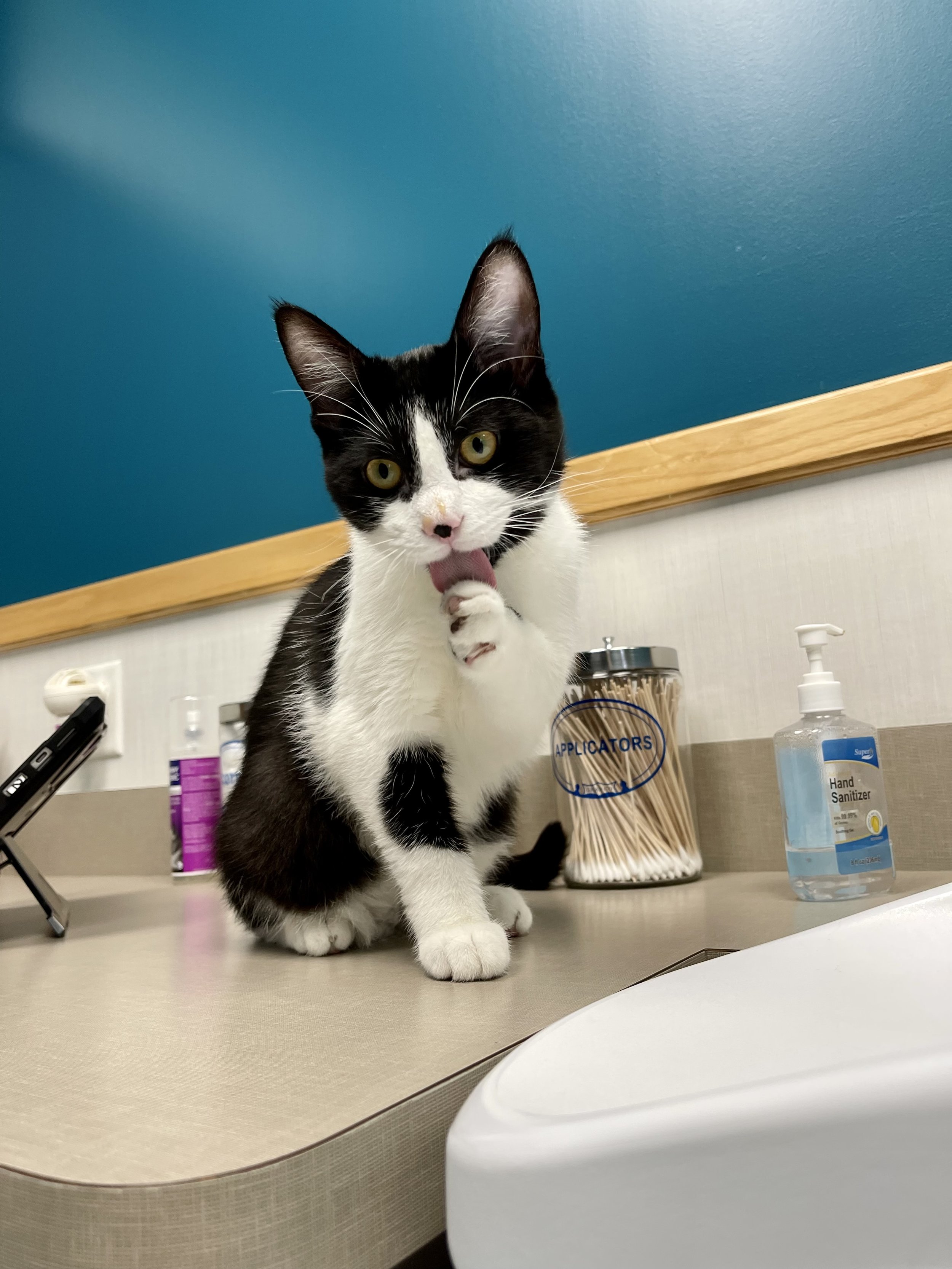The Benefits of Wellness Blood and Urine Testing
by Alyssa H., Veterinary Technician and Continuing Education Coordinator
Peer Reviewed by Dr. Sapato, BLVD Vet Logan Square Medical Director
Wellness blood and urine testing is a powerful tool in the prevention of serious disease. By starting early, annual monitoring can detect changes in your pet’s health. We then can use this information to create personalized preventative care plans that target your pet’s unique healthcare needs. At BLVD Vet, we recommend that all adult pets undergo annual wellness lab work to establish your pet’s individual profile and to observe trends.
Regular screening allows us to provide personalized healthcare recommendations tailored to your pet's unique needs. By starting at a young age, we establish a baseline of what “healthy” means for your pet. This baseline becomes invaluable for comparison if their health changes later in life. If trends are spotted and managed before their values fall outside a normal range, your veterinarian can work with you to create a proactive care plan for your pet that is targeted toward slowing the progression of degenerative diseases.
A study of nearly a quarter of a million patient results nationwide found that 1 in 5 adult dogs and 1 in 3 adult cats had abnormal test results requiring follow-up care. For senior pets, these numbers increased to 2 in 5 dogs over 9 years of age and 3 in 5 cats over 10 years of age. That’s 60% of senior cats that would benefit from additional attention during a routine checkup! (IDEXX. (2023). Every pet can benefit from a patient-centric approach to preventive care.)
What is wellness testing?
Sometimes referred to as “screening” or “wellness” labs, these diagnostic tests examine different components of your pet’s blood to assess the proper functioning of their organs.
Typically, a blood panel comprises two main parts: a complete blood count and a chemistry profile. Depending on your pet’s age and any pre-existing conditions, your veterinarian may also recommend including a urinalysis to further evaluate kidney function.
Complete Blood Count (CBC): This component assesses the cells that make up blood, including red blood cells, white blood cells, and platelets.
Chemistry Profile: This examines the levels of specific chemicals in the blood, acting like a highway for molecules that organs require for functioning. It helps identify imbalances in chemicals indicative of organ function, including the liver, kidneys, pancreas, and various electrolytes.
Thyroxine (T4) Levels: Some profiles also measure T4 levels, a thyroid hormone. This measurement helps determine if your pet’s thyroid is functioning correctly, as imbalances in thyroid hormones can affect various aspects of their health.
Urinalysis: This test not only identifies urinary tract infections but also provides insights into kidney function and waste removal processes.
But what can be done if we do find an abnormal laboratory value?
A single sample offers a snapshot in time, so veterinarians may recommend repeat testing to detect and monitor subtle changes in organ function. By monitoring these trends over time, we can create a specific care plan for your pet. Early detection allows us to take smaller, less costly steps than we would if we caught the disease at a later stage. Ultimately, preventative wellness monitoring can help avoid future hospital stays, reduce costs, and provide you and your pet with better options and more quality time together.
We hope you find these tips useful and that they help keep your pets happy and healthy! Don’t hesitate to reach out if you have any questions. We’re always here for you and your pets.
Sincerely,
The BLVD Team



